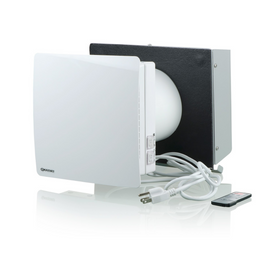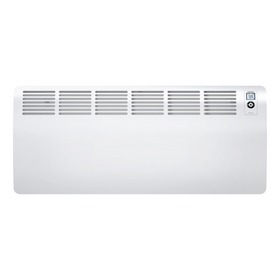
Is Washing Dishes by Hand Better Than a Dishwasher?
Last Updated: Apr 7, 2025Washing dishes is a daily task for almost every household, regardless of whether you choose to dine out or cook at home. Drinking glasses, mugs, and cutlery are in constant use. Even families that dine out regularly still enjoy a bowl of cereal in the morning, a slice of cake after dinner, or a bowl of popcorn with a movie.
Table of Contents
- Does Hand Washing Use Less Water Than a Dishwasher?
- What Does Eco or Energy-Saving Mode on a Dishwasher Mean?
- Do I Need to Pre-Wash Dishes Before Dishwasher
- How Full Should Your Dishwasher Be?
- Is It Cheaper to Run Your Dishwasher at Night?
- Is It Better to Air Dry Your Dishes in the Dishwasher?
- How Do You Load the Dishwasher Properly?
- Healthy Automatic Dish Washing Detergent Options
- How to Make Homemade Dishwasher Detergent?
- Maintaining Your Dishwasher
- How To Choose The Right Dishwasher?
- Bottom Line

Does Hand Washing Use Less Water Than a Dishwasher?
There's been an ongoing debate in sustainably-minded communities about whether washing dishes by hand or in a dishwasher is better for the environment. Both send water to the sewers or groundwater, but which saves more water and energy and does the best to reduce pollution? A study at the University of Bonn in Germany looked at dishwashing practices across Europe and found that even the most frugal hand-washer couldn't compete with a modern dishwasher's efficiency. They found that washing dishes by hand uses more energy and water. Handwashing dishes uses about 27 gallons of water and uses 2.5 kilowatt-hours (kWh). In comparison, dishwashers use just 4 gallons and 1-2 kilowatt-hours (kWh).

This data is great news for homeowners around the world! After all, dishwashers significantly save time cleaning up after dinner and parties and eliminate the tedious chore of hand washing. Dishwashers also help prevent kitchen clutter and help homeowners avoid over-handling dishes, leading to more accidents and broken glass—not to mention dry skin!
What Does Eco or Energy-Saving Mode on a Dishwasher Mean?
There are a few guidelines to help you get the most out of each wash cycle, allowing your dishwasher to do more for you. First, get to know your dishwasher and read the manual since there are various models and styles. You may be surprised to find it has an eco or energy-saving mode you never knew about! These cycles clean your dishes just as effectively while reducing the water temperature and the amount of water used. Using an eco-friendly dishwasher setting makes a BIG difference in utility expenses since about 80% of the energy used by most dishwashers goes solely to heating the wash water.
Do I Need to Pre-Wash Dishes Before Dishwasher
Many people feel the need to pre-wash or rinse dishes before placing them in a dishwasher to maximize productivity and ensure that every plate is sparkling clean. That may have been effective in the past, but modern dishwashers are powerful and can handle much more than you think. Moreover, pre-washing or rinsing dishes uses a great deal of extra water. All you need to do is scrape food scraps into your compost bin and give the item a quick wipe with a sponge if there's any sauce left behind.
How Full Should Your Dishwasher Be?
A common dishwasher mistake is running the dishwasher with only a half load. Unless your dishwasher has a half-load setting, it uses the same amount of energy and water regardless of how many dishes you load in there. To reduce your consumption and maximize the dishwasher's effectiveness, always wait to run it until it's full. Be sure not to overfill the dishwasher simultaneously, as dishes may rattle against each other and break.
Is It Cheaper to Run Your Dishwasher at Night?
If you live in an area with variable power rates, you may be able to further reduce your utility expenditures by running the dishwasher during off-peak hours when utility rates may be cheaper.
Is It Better to Air Dry Your Dishes in the Dishwasher?
If you choose the right dishwashing detergent and use a plant-based rinse-aid, let your dishes air dry rather than using the heat-dry setting. If your dishwasher doesn't have an 'air-dry' setting, open the dishwasher door when washing is complete and leave it open overnight. By morning, your dishes will be clean, dry, and ready to put away.

How Do You Load the Dishwasher Properly?
Proper arrangement of dishes in the machine is key to ensuring all your tableware is spotless. Use racks and cutlery holders as intended. Place dishes so that they're all standing upright and have space for the water to slosh around. Stacking dishes too close together may prevent them from getting clean and force you to use even more water to re-wash them.
Be sure to place large items toward the back of the machine. Space drinking glasses appropriately to prevent them from knocking against each other during wash, which can lead to cracking and breaking.
It's also important to pay attention to the items you place in the dishwasher since not all dishes are dishwasher safe. Most dinnerware has a stamp on the bottom that will tell you if it can withstand automatic washing pressure and heat. Non-reusable plastic containers, cutlery, and water bottles are never safe to wash in the dishwasher. They may melt and release toxins, polluting the rest of your dishes, discarded water, and the indoor air.
Speaking of pressure, dishwashers use a lot! To increase each load's efficiency, try to avoid heavy water use in the house while the dishwasher is running. That includes showers, washing clothes in an automatic washing machine, and watering the lawn and garden.
Healthy Automatic Dish Washing Detergent Options
You're probably familiar with your options in liquid and powder dishwashing soaps, but not all are created equal. Some dish soaps contain phosphates, a chemical additive that is good at tackling stains and grease but is incredibly dangerous should they reach groundwater, lakes, and oceans. Unfortunately, phosphates cannot easily be removed from wastewater. They have also been found to cause eutrophication (algae blooms). Phosphates are slowly being banned state by state, but they're not yet completely eradicated. So, it's always important to read those labels when buying automatic dishwashing detergents. In Canada, a federal regulation was enacted in 2010 to limit phosphates in cleaning products to 0.5%.
For those who prefer a liquid formula, Better Life Natural Dishwasher Gel Detergent, made from natural plants and minerals, is a great option. It is proudly cruelty-free and doesn't contain any phosphates, bleach, fragrance, dye, or preservatives. Better Life uses solar energy to power production, making it an even more sustainable choice. Perhaps you enjoy the convenience of pods or packs. In that case, you might consider Ecover Zero Dishwasher Tabs. They are free of phosphates, chlorine, fragrance, and dyes, biodegradable, and come in recycled cardboard packaging. The best part is - they work as well or better than the less healthy and environmentally friendly alternatives!
How to Make Homemade Dishwasher Detergent?
You'd be surprised how easy it is to make homemade dishwasher detergent! Plus, when you make it, you have 100% control over what's in it, and you can even add essential oils to give it your favorite scent. As an alternative to popular rinse agents like Jet-Dry, you can also use vinegar.
4 Simple Ingredients
- Two parts baking soda
- Two parts borax
- One part salt
- One part citric acid
2 Simple Steps
- Combine all ingredients and store in an airtight container to prevent clumping and moisture buildup
- Use one tablespoon of the mixture per load

Maintaining Your Dishwasher
As all homeowners learn eventually, nothing is maintenance-free, and that is true for dishwashers as well. A couple of things to check:
- After many uses, the spray arm underneath the bottom rack can become clogged. Remove it and use a small brush or pipe cleaner to clean out those small holes to improve water flow.
- If there is a removable filter (also underneath the bottom rack), pull it out and rinse it thoroughly, so the drain does not get clogged.
- If the plastic coating on the rack tines wears down, they can become rusty. This problem can be mitigated by placing little plastic caps over the exposed tines, but first, add uber goop and glue to prevent further deterioration and hold them in place.

How To Choose The Right Dishwasher?
If you are in the market for a dishwasher upgrade, we encourage you to look into Energy Star models. These options use 25% less energy than the mandated minimum. Their 5-star rating system makes it easy to discern how energy efficient they are. On a scale of 1-5, a 5-star dishwasher can save a single household 554 gallons of water each year. That's a lot of water and time saved!
Bottom Line
Dishwashers are made to wash dishes, so let them do their job. All you need to do is wipe any extra food off the plate with a fork or a sponge, properly arrange the dishes in the machine, use the right soap and let it go to work on those dirty dishes. Properly maintaining your dishwasher will extend its life, saving you money in the long run.
Laura Bourland
Laura grew up in the California suburbs, far removed from environmentalism, but nature always has a way. She uprooted her life in 2015, moving to the countryside of Washington to live a more sustainable and simple life on 12 acres. She and her fiancee are learning on the job as they attempt everything from gardening and natural pest control to eco-friendly building and home improvement.











